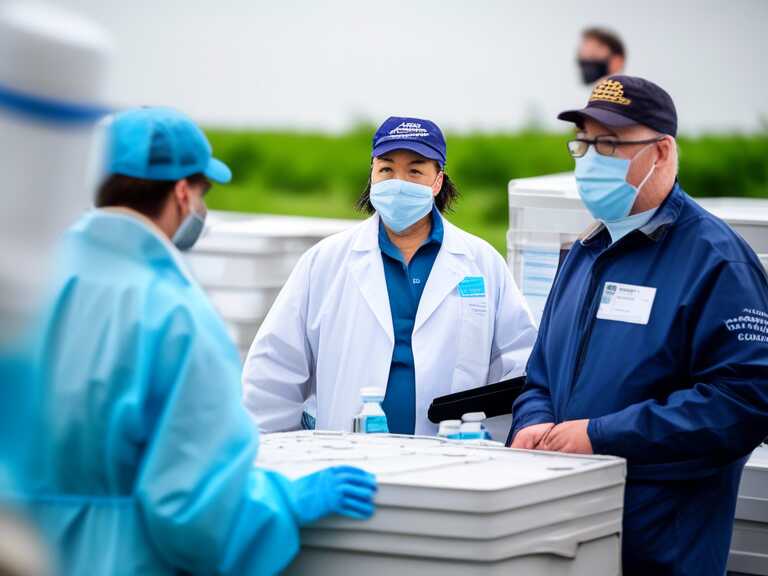
Bird Flu Crisis: Egg Prices Soar Over 50%, Imports Planned
Bird flu outbreak causes egg prices to surge, prompting the U.S. government to import eggs and implement a five-pronged strategy to combat the issue.

Egg prices are predicted to soar more than 41% due to an ongoing outbreak of bird flu that has significantly impacted the poultry industry. In response to this crisis, the U.S. government has announced a five-pronged strategy backed by $1 billion in funding to combat avian influenza and alleviate the pressure on egg prices.
According to the U.S. Department of Agriculture (USDA), the plan includes several key initiatives: $500 million for enhanced biosecurity measures, $400 million in relief for impacted farmers, and $100 million for vaccine research. Notably, while there is currently no approved vaccine against bird flu in the U.S., the USDA plans to intensify research efforts into immunization and streamline regulations to potentially reduce egg costs.
Impact on Egg Production and Prices
The outbreak of avian influenza has had a devastating impact on egg production. Since December, millions of birds have been culled due to infections among egg-laying hens across various states, from California to Iowa. This has led to grocery stores imposing purchase limits on eggs, and breakfast chains such as Waffle House and Denny's adding surcharges to orders containing eggs.
The price of eggs has witnessed a sharp increase. Last month alone, the price jumped 15%, and in January, it was up by a staggering 53% compared to the same period last year, according to Consumer Price Index data. These soaring prices have prompted some consumers to explore alternative options, such as buying or renting hens, although this may not necessarily lead to significant savings.
Importing Eggs as a Short-Term Solution
The Trump administration is actively engaged in discussions to import approximately 70 million to 100 million eggs from other countries in the coming months. However, these imports represent a small fraction of the nearly 8 billion eggs produced in the U.S. in January alone, which was down by 4% compared to the previous year, as per USDA data.
Agriculture Secretary Brooke Rollins acknowledged the need for temporary import options to mitigate egg costs in the short term. She emphasized that the administration is committed to finding solutions to alleviate the burden on consumers struggling with rising egg prices. While she did not disclose the specific countries from which the U.S. intends to procure eggs, Turkey has indicated its willingness to export 420 million eggs to the U.S. this year.
Government Efforts and Consumer Relief
The USDA is implementing various measures to address the avian influenza outbreak and its consequences on egg production and prices. The agency is focusing on research, biosecurity enhancements, farmer relief, and vaccine development. Secretary Rollins reiterated the government's commitment to providing support to families affected by the rising cost of eggs.
As the situation unfolds, it remains crucial for consumers to stay informed about the latest developments and explore available options to manage their egg consumption and budget effectively. The ongoing efforts by the U.S. government aim to mitigate the impact of the bird flu outbreak and restore stability to the egg market.
Share news















